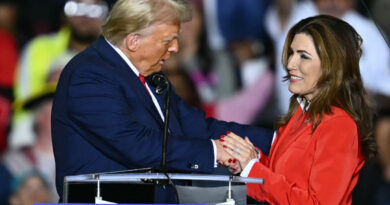Appeals Court Refuses to Suspend Ruling Requiring Reinstatement of Federal Employees
The U.S. administration has already requested the Supreme Court to engage in the case concerning the reinstatement of over 17,000 recent workers.
A federal appeals court declined a request from the U.S. government on March 26 to delay a ruling that mandates the reinstatement of thousands of government employees.
“The appellants have not established a likelihood that the district court made a clear error in determining that the six agencies were instructed by the United States Office of Personnel Management (OPM) to terminate probationary employees,” wrote U.S. Circuit Judges Ana de Alba and Barry Silverman. “Consequently, appellants have not indicated that the district court likely abused its discretion in mandating the reinstatement of the terminated employees.”
“Their retroactive claim that restoring the previous state would be administratively overwhelming does not equate to irreparable harm,” they argued.
U.S. Circuit Judge Bridget S. Bade, the third judge on the Ninth Circuit panel, acknowledged that the government had effectively articulated that the order placed a significant burden on it.
Judge Bade also expressed a dissenting opinion on the new ruling, indicating that the government is likely to prevail in the case “because the district court lacked jurisdiction to issue the preliminary injunction.”
While Judge Alsup determined that the organizations suing OPM, such as Vote Vets Action Fund, possessed standing since they had to allocate resources due to OPM’s actions, Judge Bade countered that these groups had not proven that the reinstatement order is likely to alleviate the harms they claim to have faced.
“Reinstating the dismissed employees does not guarantee they will return to their previous positions and duties, nor that the agencies will render the services sought by the organizational plaintiffs. It is equally possible that the various agencies will reassign these employees to different roles, allocate them new tasks, or modify their mission and services in a way that does not enhance the services to the organizational plaintiffs, or even legally terminate the employees,” she wrote.





